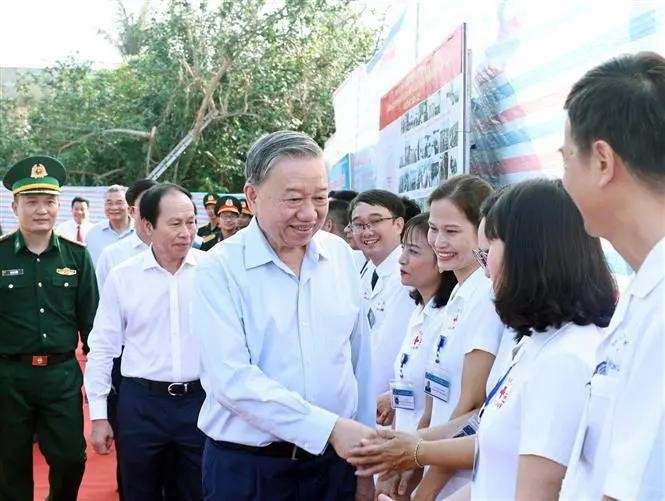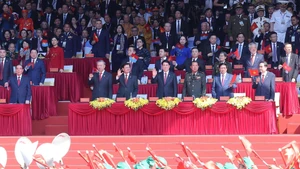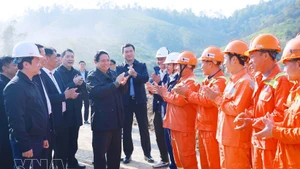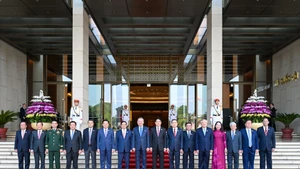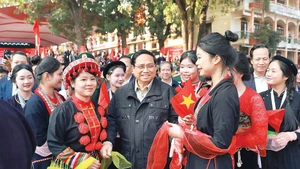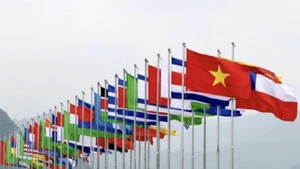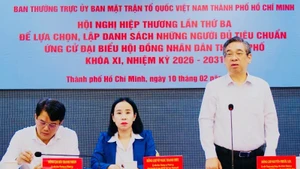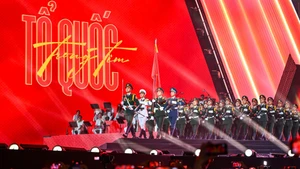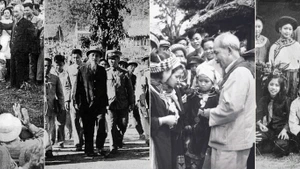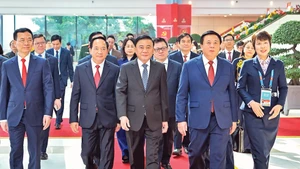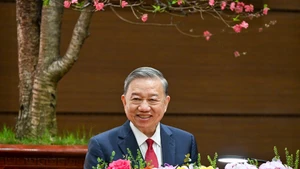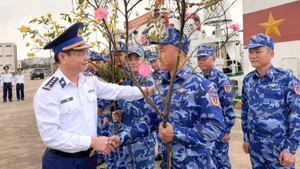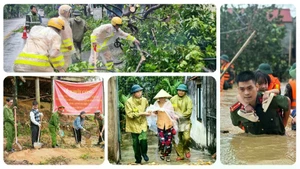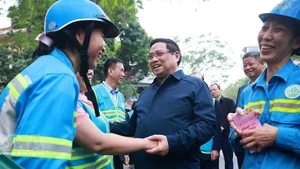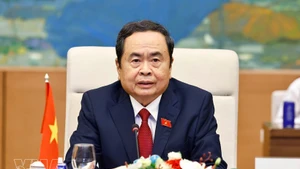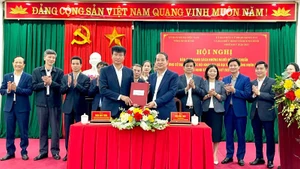Bach Long Vi, located in the Gulf of Tonkin, is the furthest island from Vietnam's mainland, about 15 nautical miles from the boundary between Vietnam and China in the Gulf of Tonkin, and 110 kilometres from Hai Phong's Hon Dau. The island district of Bach Long Vi was established on December 9, 1992, directly under Hai Phong city. Its residents primarily rely on fishing and fisheries-related services, with fishing vessels often seeking shelter in the island's harbour during rough seas.
After more than three decades of development, Bach Long Vi has made significant strides in political, social, and infrastructural advancement. Local authorities reported that over 60 key projects have been completed, contributing positively to the region's economy and national security and defence, and firmly protecting Vietnam's sovereignty of islands and sea.
In terms of infrastructure, the island now enjoys a stable supply of clean water, essential for both civilians and military personnel. The power supply, provided through a combination of diesel generators, wind, and solar energy, delivers more than 5 MW of power, ensuring that energy needs are met for the next 10-15 years. The district has seen consistent growth in its economy, particularly in sectors such as fisheries, aquaculture, agriculture, and tourism, while ensuring security and defence.
Lam highly evaluated contributions of local residents, officers, soldiers, officials and young volunteers, highlighting the transformation of Bach Long Vi from a barren, remote island into a green, clean, vibrant and thriving one over the past 31 years.
The Party chief praised the island’s strategic importance, pointing out that Bach Long Vi serves as a key maritime gateway, controlling vital shipping lanes in the Gulf of Tonkin and providing logistics services for military activities at sea. He also highlighted the island's rich marine ecosystem and its role as a hub for fisheries.
Referring to the vision set at the 12th Party Central Committee's 8th plenary on sustainable ocean economy development, the General Secretary urged Hai Phong and Bach Long Vi to focus on developing a comprehensive strategy for the island, ensuring that it becomes a fortress for defending Vietnam's maritime sovereignty while also fostering economic growth, particularly in fisheries, aquaculture, and tourism.
He recommended the authorities to prioritise sustainable infrastructure development, including energy, transport, telecommunications, and climate resilience measures, while continuing to strengthen the island’s national security capabilities.
The Party leader also emphasised the need to turn the island into a centre for fishing logistics and search and rescue in the northern sea, promoting high-end seafood farming, developing high-class resort tourism associated with preserving the marine ecosystem.
Earlier the same day, Lam laid a wreath at the Bach Long Vi Martyrs' Memorial and visited the Radar Station 27, offering gifts to the soldiers stationed there. He also attended the ground-breaking ceremony for the construction of a residential building, a dining hall, and a sanitation facility at the Military and Civilian Medical Centre on the island.
On the occasion, the Party chief presented gifts to the local authorities, military units, and 10 policy beneficiary households on Bach Long Vi island.
